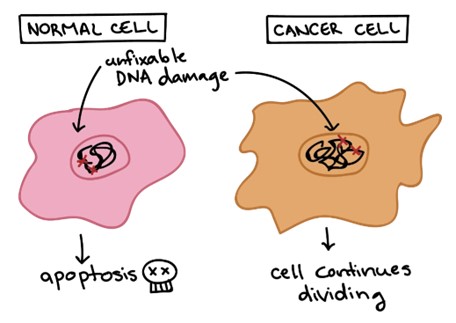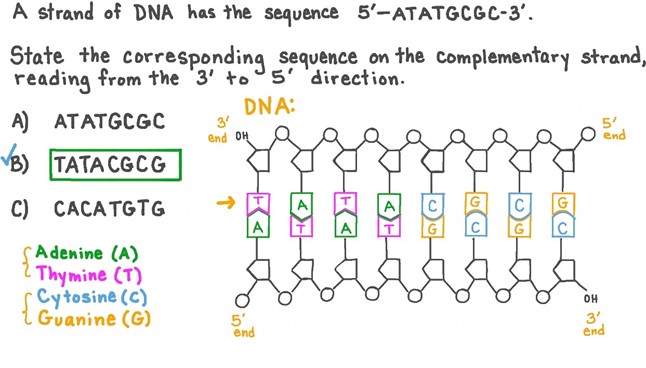Which of the following describes a genetic mutation that results in uncontrolled division of a single cell within the body?
Cancer
Gene therapy
Stem cell
Translation
The Correct Answer is A
A genetic mutation that results in the uncontrolled division of a single cell within the body describes cancer. Cancer is a disease of uncontrolled cell division. Its development and progression are usually linked to a series of changes in the activity of cell cycle regulators. In most cases, these changes in activity are due to mutations in the genes that encode cell cycle regulator proteins.
The other options are not correct because they do not accurately describe a genetic mutation that results in the uncontrolled division of a single cell within the body. Gene therapy, stem cells, and translation are not processes that result in uncontrolled cell division.

Nursing Test Bank
Naxlex Comprehensive Predictor Exams
Related Questions
Correct Answer is D
Explanation
The apocrine gland is a component of the integumentary system that secretes pheromones. Pheromones are chemical signals that are released by an individual and can affect the behavior or physiology of other individuals of the same species. The other options are not components of the integumentary system that secrete pheromones. The fossa ovalis is a depression in the interatrial septum of the heart, the seminiferous tubule is a structure in the testes where sperm are produced, and the dermal papilla is a structure at the base of a hair follicle that provides nutrients to the hair.

Correct Answer is A
Explanation
The sequence of bases on the complementary strand of DNA would read 5' TCGATCGCA 3'. In DNA, the nitrogenous bases adenine (A) and thymine (T) pair together, and cytosine (C) and guanine (G) pair together. The complementary strand is also antiparallel to the original strand, meaning that it runs in the opposite direction with the 5' end matching up with the 3' end of the original strand. The other options do not accurately represent the complementary sequence of bases or the antiparallel orientation of the strands.

Whether you are a student looking to ace your exams or a practicing nurse seeking to enhance your expertise , our nursing education contents will empower you with the confidence and competence to make a difference in the lives of patients and become a respected leader in the healthcare field.
Visit Naxlex, invest in your future and unlock endless possibilities with our unparalleled nursing education contents today
Report Wrong Answer on the Current Question
Do you disagree with the answer? If yes, what is your expected answer? Explain.
Kindly be descriptive with the issue you are facing.
